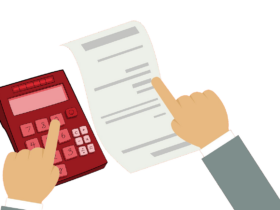Hiring the right candidate can feel like searching for a needle in a haystack. With so many applicants and only so much time, making confident hiring decisions is often challenging. Pre-employment testing offers a solution to this dilemma. This blog explores how these tests can revolutionize your hiring process, ensuring you bring onboard the best fit for your team.

The Importance of Effective Hiring
When it comes to building a successful business, effective hiring is crucial. Employees are the backbone of any organization, and bringing in the right talent can significantly impact overall productivity and company culture. But with the variety of roles and required skills, how do you ensure you make the best hire every time?
What is Pre-Employment Testing?
Pre-employment testing refers to assessments given to job candidates before making a hiring decision. These tests measure a range of attributes, including cognitive abilities, personality traits, job-specific skills, and more. By objectively evaluating these aspects, employers can gain deeper insights into a candidate’s potential suitability for the role.
Benefits of Pre-Employment Testing
Enhanced Objective Evaluation
One of the primary benefits of pre-employment testing is that it provides an objective evaluation of candidates. Traditional hiring methods can be subjective and prone to biases. Tests, on the other hand, offer measurable data, allowing for fairer and more consistent hiring decisions.
Increased Hiring Efficiency
With a large pool of applicants, sifting through resumes can be time-consuming. Pre-employment tests streamline this process by quickly filtering out candidates who don’t meet the required criteria. This saves time and effort, allowing hiring managers to focus on interviewing only the most promising candidates.
Improved Employee Retention
Hiring the right person for the job results in higher job satisfaction and better employee retention. Pre-employment tests can help identify individuals who not only have the skills but also fit well with the company culture, ensuring long-term success and reducing turnover rates.
Types of Pre-Employment Tests
Cognitive Ability Tests
These tests assess a candidate’s logical reasoning, problem-solving abilities, and overall cognitive capacity. They are particularly useful for roles requiring critical thinking and complex decision-making.
Personality Tests
Understanding a candidate’s personality traits can help predict their behavior in the workplace. Personality tests evaluate characteristics like extroversion, agreeableness, and emotional stability, providing insights into how a candidate will fit within the team.
Job-Specific Skill Tests
These assessments measure a candidate’s proficiency in the skills directly related to the role. For example, a coding test for a software developer or a typing test for an administrative assistant ensures the candidate has the necessary technical skills.
Background Checks
For certain positions, especially those involving sensitive information or high levels of trust, background checks are crucial. These can include criminal record checks, employment verification, and credit history reviews. In some cases, companies might even consider engaging a private investigators firm in Birmingham or other specialized agencies to conduct more thorough background investigations, ensuring the utmost diligence in the hiring process.
Implementing Pre-Employment Testing in Your Hiring Process
Selecting the Right Tests
Choosing the appropriate tests for your specific needs is crucial. Invest time in understanding the requirements of the role and the attributes that are most important for success. There are many reputable testing platforms available, each offering different types of assessments.
Integrating Tests with Application Processes
Once you’ve selected the tests, integrate them seamlessly into your application process. Clearly communicate to candidates that testing is part of the hiring process and provide them with all necessary instructions. This transparency builds trust and sets the right expectations.
Analyzing Test Results
Interpreting the results accurately is as important as conducting the tests. Use the data to create a comprehensive profile of each candidate. Combine this with interview insights to make well-informed hiring decisions.
Legal Considerations and Best Practices
Ensuring Fairness and Compliance
It’s important to ensure that your testing process complies with relevant employment laws and regulations. Avoid any tests that could be considered discriminatory. Make sure tests are job-related and validated to predict job performance accurately.
Transparency with Candidates
Be transparent about why you are using pre-employment tests and how the results will be used. This openness fosters a positive candidate experience and shows respect for their time and effort.
Continuous Improvement
Regularly review and update your testing processes to align with industry standards and evolving job requirements. Seek feedback from hiring managers and candidates to improve the effectiveness and efficiency of your pre-employment testing strategy.
Conclusion
Pre-employment testing is a powerful tool for improving hiring decisions. These tests provide objective data, streamline the hiring process, and ensure a good fit between candidates and company culture. By implementing the right tests and following best practices, businesses can enhance their hiring efficiency, reduce turnover rates, and build stronger teams.
Integrating pre-employment testing, whether for cognitive abilities, personality traits, or specific skills, can revolutionize your recruitment strategy. In regions like Utah, additional considerations such as drug testing in Utah might also be relevant to ensure the highest standards of hiring. By committing to these practices, organizations can steer towards a future of optimized, efficient, and fair hiring processes.





